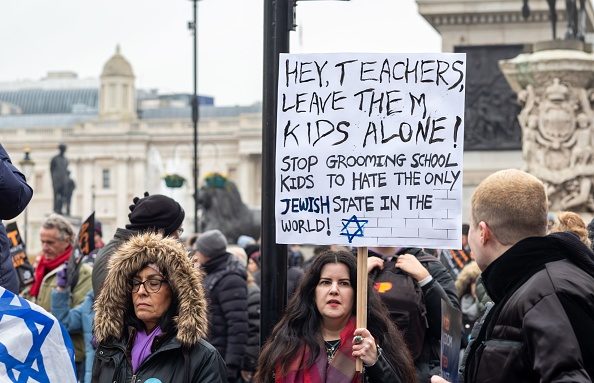In May, Education Secretary Bridget Phillipson called antisemitism among British schoolchildren “a national emergency”. She wasn’t exaggerating. The Telegraph has revealed a shocking rise in antisemitism in UK schools — a development that threatens the safety of Jewish children and staff, and tears at the fabric of social cohesion.
The teachers’ union NASUWT found that 51% of Jewish teachers have experienced antisemitism in the workplace. Of those working in non-faith schools, a whopping 79% had experienced antisemitism. This is unsurprising considering the upward trend in antisemitic incidents in British education. The Community Security Trust (CST) recorded 162 antisemitic incidents in schools in the first half of 2024 alone, marking a 119% increase on the same period in 2023.
What’s going on in British classrooms, playgrounds, and school corridors is deeply concerning. The National Education Union (NEU) has been fostering a culture hostile to Jews, thanks to its close ties with the Palestine Solidarity Campaign. In one school, a Jewish girl was slapped after being asked her opinion on Israel. In another, a Jewish student was told by a classmate that “I hope you get gassed.” These aren’t isolated incidents. Nazi symbols are increasingly popular, and 44% of Jewish teachers report swastika graffiti in their schools.
Antisemitism is being absorbed and repeated by children and school staff, shaped by both online and offline environments. On social media and gaming platforms — especially smaller platforms overlooked by the Online Safety Act’s stricter measures — antisemitic conspiracy theories and incitement thrive. Children are exposed to Holocaust distortion, “Zionist cabal” narratives, and calls for violence from Islamist, far-Left and far-Right sources. These are sometimes disguised in funny memes or ironic jokes and banter that appeal to children.
Offline, the rise of “family-friendly” Palestine protests — often led by groups such as Parents for Palestine — also blur political activism with hate speech. Children are encouraged to chant “From the river to the sea”, which has been described as antisemitic by former culture secretary Lucy Frazer and “deeply offensive” by former home secretary James Cleverly. Parents for Palestine has promoted material by the Popular Front for the Liberation of Palestine, which glorifies armed struggle. The group has encouraged kids to use an activity book called Intifada Milk, a “children’s story and workbook” which depicts the entire land of Israel as Palestine.
We urgently need a multi-pronged response. Schools must adopt clear antisemitism policies, using the IHRA definition as a benchmark. The non-legally binding working definition, which has already been adopted by the UK Government, states that “antisemitism is a certain perception of Jews, which may be expressed as hatred toward Jews. Rhetorical and physical manifestations of antisemitism are directed toward Jewish or non-Jewish individuals and/or their property, toward Jewish community institutions and religious facilities.” It’s accompanied by examples that can help tackle antisemitism even in its more subtle manifestations. Schools should also go beyond Holocaust history to include Jewish life, culture and contributions to British society. Interfaith engagement must be expanded.
The Government’s updated extremism definition offers a crucial framework. It recognizes that extremism isn’t always violent — it can be ideological, quiet, corrosive. When antisemitism disguises itself as activism, when it denies Jewish identity, normalizes hate, or romanticizes terror, it becomes extremism. This lens should be applied across the education sector — to external speakers, protest activity, and union messaging alike.
We cannot treat antisemitism as a fringe issue. When children chant for intifada, or teachers demonize Jews, the problem is no longer just prejudice. It’s a warning sign of radicalization, and one we ignore at our peril.











Join the discussion
Join like minded readers that support our journalism by becoming a paid subscriber
To join the discussion in the comments, become a paid subscriber.
Join like minded readers that support our journalism, read unlimited articles and enjoy other subscriber-only benefits.
Subscribe